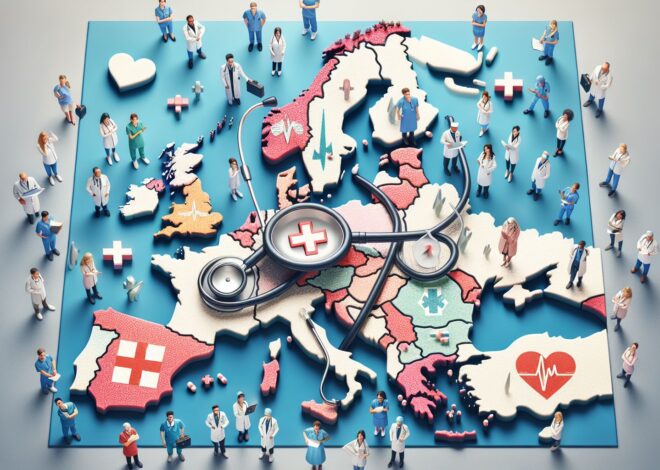
The Preparedness and Response of European Health Systems
The outbreak of the COVID-19 pandemic has put a spotlight on the preparedness and response of healthcare systems around the world. European health systems have faced unprecedented challenges in dealing with the rapid spread of the virus, putting immense pressure on health professionals, policymakers, and concerned citizens alike. In this article, we will explore how European health systems have fared in terms of preparedness and response, and what lessons can be learned for the future.
Preparedness
The preparedness of European health systems in the face of a pandemic can be evaluated on multiple fronts. Firstly, the availability of resources such as hospital beds, ventilators, and personal protective equipment (PPE) is crucial in ensuring that healthcare facilities can cope with the surge in cases. Many European countries faced shortages of these essential resources during the initial stages of the pandemic, leading to difficult decisions about resource allocation and prioritization.
Secondly, the readiness of healthcare professionals to handle a crisis of this magnitude is essential. The training and capacity-building of healthcare workers in areas such as infection control, triage, and emergency response play a critical role in enabling them to effectively manage the influx of patients and provide quality care under challenging circumstances.
Thirdly, the coordination and communication between different levels of the healthcare system, as well as with other sectors such as public health and social services, are key to ensuring a cohesive and effective response to a public health emergency. Strong leadership and clear strategies for responding to the crisis are vital in guiding the actions of healthcare professionals and decision-makers.
Response
The response of European health systems to the COVID-19 pandemic has been a mixed bag. While some countries have been praised for their proactive measures in containing the spread of the virus and providing adequate support to healthcare workers, others have been criticized for their slow and fragmented response, leading to higher rates of infection and mortality.
One of the key challenges faced by European health systems in their response to the pandemic has been the lack of a unified approach across countries. The European Union has made efforts to coordinate the response to COVID-19 through initiatives such as the Joint Procurement of medical supplies and the creation of a European Health Response Task Force. However, the effectiveness of these measures has been limited by the divergent strategies and priorities of individual member states.
Furthermore, the impact of the pandemic on the mental health and well-being of healthcare professionals cannot be overlooked. The high levels of stress, burnout, and trauma experienced by frontline workers during the crisis have raised concerns about the long-term sustainability of the healthcare workforce and the need for greater support and protection for those on the front lines.
Conclusion
In conclusion, the COVID-19 pandemic has exposed both the strengths and weaknesses of European health systems in terms of their preparedness and response to a public health emergency. While some countries have demonstrated resilience and adaptability in the face of the crisis, others have struggled to cope with the unprecedented challenges posed by the virus.
Moving forward, it is essential for European health systems to prioritize investments in healthcare infrastructure, workforce training, and emergency preparedness to ensure that they are better equipped to deal with future pandemics and health emergencies. Collaboration and solidarity between countries, as well as effective communication and coordination at all levels of the healthcare system, will be key in building a more resilient and responsive healthcare system for the future.
As health professionals, policymakers, and concerned citizens, we all have a role to play in shaping the future of European health systems and ensuring that they are better prepared to face the challenges that lie ahead. By learning from the lessons of the COVID-19 pandemic and working together towards a common goal of improving public health and well-being, we can build a stronger and more sustainable healthcare system for the benefit of all.



